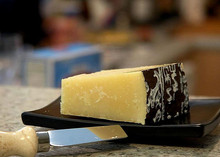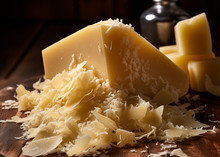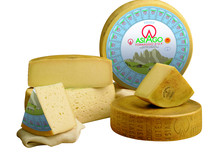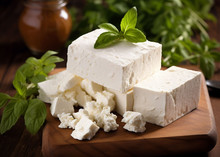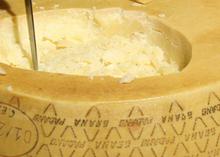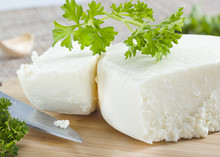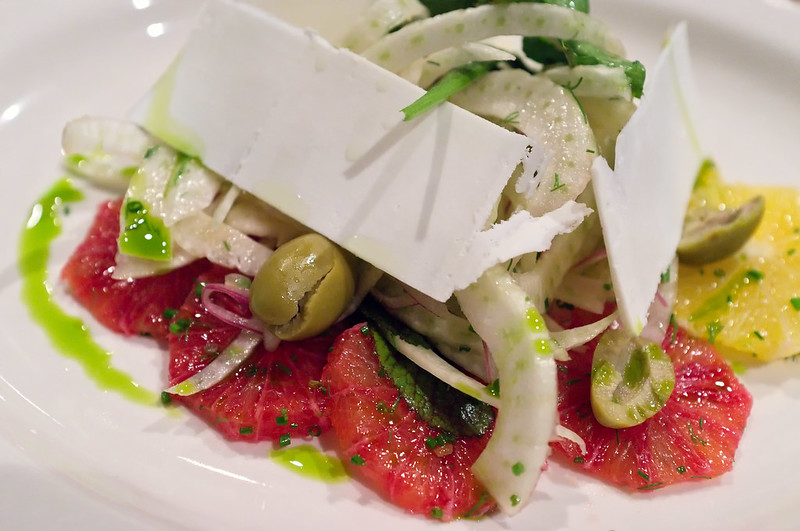
Substitutes for Ricotta Salata
Ricotta Salata is a famous Italian cheese known for its delicate flavor and crumbly texture. However, if you can’t find it, several alternatives can provide a similar taste and texture when added to your dishes.
Is Ricotta Salata Similar to Feta Cheese?
Feta cheese is a brined cheese made from sheep's milk or a mixture of sheep's and goat's milk. It has a tangy and salty flavor, which makes it a potential substitute for Ricotta Salata. While the texture of Feta cheese is similar to that of Ricotta Salata, it is important to note that the flavor profile of Feta is much stronger and saltier. If you decide to use Feta as a substitute, consider reducing the quantity or combining it with other milder cheeses to balance the flavors in your recipe.
Ricotta Salata, on the other hand, is an Italian cheese made from the whey of sheep's milk. It is pressed, salted, and aged for a few months, resulting in a firm texture and a slightly sweet and nutty flavor. Compared to Feta, Ricotta Salata is less tangy and significantly less saline, making it a versatile cheese that can be used in various dishes.
When it comes to cooking, Feta cheese is known for its tendency to crumble easily, and doing so adds a creamy and salty element to salads, pastries, and savory dishes. With its firmer texture, Ricotta Salata is often grated or shaved over dishes to add a subtle richness and depth of flavor. In truth, both cheeses bring their unique characteristics to the table and can be used interchangeably. The key is to adjust the seasoning as you experiment, giving you the confidence to adapt recipes to your taste.
Is Ricotta Salata Similar to Pecorino Romano?
Pecorino Romano, a robust and flavorful hard cheese made from sheep's milk and aged for several months, can be a delightful substitute for Ricotta Salata. Its rich, salty, and slightly nutty flavor can elevate your dishes to a whole new level. While the texture of Pecorino Romano is similar to Ricotta Salata, the taste is quite distinct. Pecorino Romano has a more robust flavor compared to Ricotta Salata, which can add a bold and savory note to your dishes. If you use Pecorino Romano as a substitute, remember that it may overpower the dish, so adjust the quantities accordingly.
On the other hand, Ricotta Salata is an Italian cheese made from whey leftover from the production of different cheeses, such as mozzarella or provolone. It is pressed, salted, and aged for several months, resulting in a firm texture perfect for grating or crumbling over dishes. Ricotta Salata has a mild, slightly tangy flavor with a hint of sweetness, making it a versatile cheese that can be used in a variety of dishes.
When it comes to cooking, Pecorino Romano is commonly used in pasta dishes like cacio e pepe or carbonara, where its bold flavor can stand up to the other ingredients. On the other hand, Ricotta Salata is often crumbled over salads, grilled vegetables, or pasta for a creamy and slightly salty addition. Both cheeses bring their own unique characteristics to a dish, so choosing between them depends on the flavor profile you want to achieve.
Is Ricotta Salata Similar to Parmesan Cheese?
Parmesan cheese, also known as Parmigiano-Reggiano, is a hard Italian cheese made from cow's milk and aged for at least 12 months. It has a rich, nutty, and slightly fruity flavor. While the texture of Parmesan cheese is not exactly the same as Ricotta Salata, it can still be used as a substitute in some dishes. The flavor of Parmesan cheese is different from Ricotta Salata, but it offers a pleasant umami, a savory taste often described as 'the fifth taste ', that can complement various recipes.
Ricotta Salata, on the other hand, is an Italian whey cheese made from sheep's milk. It is pressed, salted, and aged for at least three months. The aging process gives Ricotta Salata a firm texture that is crumbly and slightly salty. Unlike Parmesan cheese, Ricotta Salata has a mild, milky flavor with a hint of tanginess. This cheese is often used in salads, pasta dishes, and as a topping for bruschetta.
When comparing Ricotta Salata to Parmesan cheese, it's important to note that while both are Italian cheeses, they serve different culinary purposes. Parmesan cheese is commonly grated over pasta, risotto, and salads to add a bold, savory flavor. On the other hand, Ricotta Salata is often crumbled or shaved to add a creamy texture and subtle saltiness to dishes. Both cheeses can enhance the overall taste of a dish, but the choice between them depends on the desired flavor profile and texture.
Is Ricotta Salata Similar to Asiago Cheese?
Asiago cheese is an Italian cow's milk cheese that comes in two varieties: Asiago Pressato and Asiago d'Allevo. Asiago Pressato is a fresh and mild cheese, while Asiago d'Allevo is aged and has a stronger flavor. When considering a substitute for Ricotta Salata, Asiago Pressato might be a better option due to its milder flavor and creamy texture, which is similar to Ricotta Salata. However, remember that Asiago Pressato is less firm than Ricotta Salata, so there might be better substitutes in all recipes.
Is Ricotta Salata Similar to Cotija Cheese?
Cotija cheese is a Mexican cheese made from cow's milk or a mixture of cow's and goat's milk. It has a crumbly texture and a salty flavor. While Cotija cheese is saltier than Ricotta Salata, it can still be a suitable substitute, depending on the recipe. It's important to note that Cotija cheese has a unique taste that adds a distinct Mexican touch to dishes so it may alter the overall flavor profile. Use it as a substitute with caution, especially in Italian-inspired recipes.
Is Ricotta Salata Similar to Grana Padano?
Grana Padano is an Italian hard cheese made from cow's milk and aged for at least nine months. It has a nutty and milder flavor compared to Parmesan cheese. Although the texture of Grana Padano is slightly different from Ricotta Salata, it can still be used as a substitute in some dishes. Grana Padano's milder flavor allows it to play well with other ingredients without overpowering the dish. However, keep in mind that the taste will not be identical to Ricotta Salata.
In conclusion, while Ricotta Salata has unique characteristics, these substitutes offer a world of possibilities, allowing you to recreate the flavors and textures in various recipes. Whether you chose Feta cheese, Pecorino Romano, Parmesan cheese, Asiago cheese, Cotija cheese, or Grana Padano, remember to adjust the quantities to achieve the desired taste and texture. Embrace the adventure of experimenting with new flavors in your favorite dishes!

